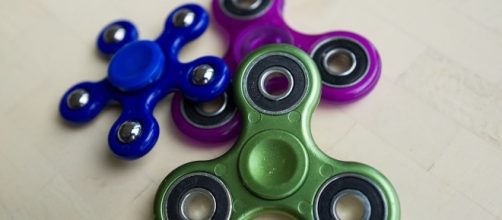Chances are pretty good you can’t get too far without seeing someone playing with or hearing someone talk about the fidget spinner. Over the last couple months, the popularity of this strange little trinket has absolutely exploded. Some find the popularity of the toy to be a little bizarre as it was out for a pretty significant amount of time before it became a hot toy.
Everyone wants one
As the hottest toy currently on the market, everyone is dying to get their hands on a Fidget spinner. Parents are on the hunt to find one for their children and stores are struggling to keep the shelves stocked with them.
Naturally, toy manufacturers have designed all sorts of different fidget Spinners in order to rake in on the insane popularity of the toy. The real question is – could the popularity of this hot toy be becoming a problem?
A hot toy does have some downsides
Outside of the fact that some parents are struggling to find a fidget spinner for their children, there are several other reasons why the fidget becoming so popular isn’t such a great thing. For starters, fidget spinners are extremely convenient little toys. They fit in your pocket which makes them easy for children to take with them as they go places. This extreme on-the-go convenience, however, has started to create problems. Namely, the biggest problem is the fact that it makes it easy for children to take these toys places that aren’t exactly appropriate places for toys.
Schools are starting to crack down
As a parent, it may be time to start encouraging your child to keep their fidget spinners at home. At the very least, you should be doing a pocket and backpack check before school. Fidget spinners have actually been around for years as they make a great concentration object for children with autism – as well as some other disabilities. Teachers, however, have reported the same toys intended to help some children with concentration are doing the exact opposite for neurotypical children. Neurotypical children are bringing their fidget spinners to school with them and they are becoming a huge distraction as the child is supposed to be focusing on school.
In addition to being a distraction, some Schools have asked parents not to allow these objects to come to school as they are a little hazardous.
Some children are even getting hit in the faces with the spinners. Teachers at some schools feel the easiest way to prevent this from happening is simply to ban the toy.
Are the fidget spinners becoming a problem? Will schools be able to find a way to make it possible for children who actually need the spinners to focus to have them while other children who are just using them as toys leave them at home?


